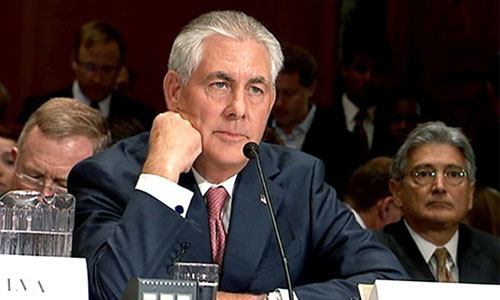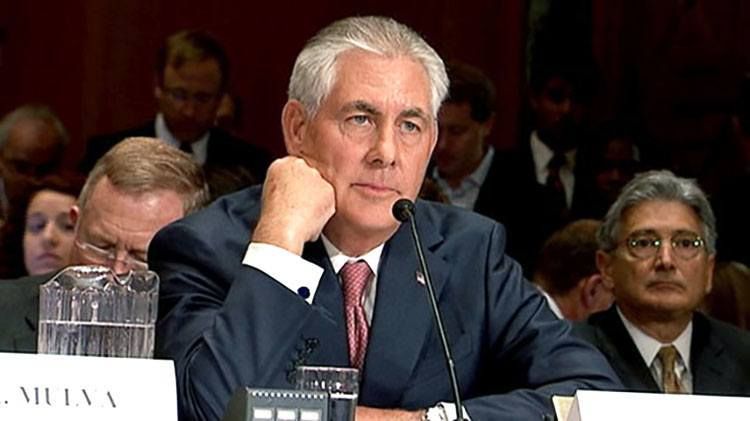

Before Kenneth Cohen retired from his post earlier this year as ExxonMobil’s longstanding vice president of public and government affairs, he published a blog reasserting the company’s support for a revenue-neutral carbon tax. Cohen’s Dec. 2 column was part of a broader public relations campaign to deflect allegations that ExxonMobil had downplayed evidence its own scientists uncovered about climate change and defrauded its shareholders and the public at large.
Cohen stressed that ExxonMobil believes “the risks of climate change are real and … warrant constructive action” and traced the company’s support for a carbon tax back to a January 2009 speech by company CEO Rex Tillerson. Since then, Cohen said, ExxonMobil has been actively promoting it as the most viable way to curb carbon emissions in its communications with shareholders, journalists, government officials and—most especially—federal lawmakers, who are in a position to do something about it. “ExxonMobil executives,” he said, “have echoed that message in countless private briefings with members of Congress on carbon tax policy options.”
Is that right?
A cursory look at just who ExxonMobil funds on Capitol Hill and how they vote tells a very different story. That funding is significant. From 2010 through 2014, the company spent $6.4 million to elect lawmakers and another $64.2 million—more than any other oil and gas company—to lobby them.
Given this largesse, one would expect a significant percentage of ExxonMobil’s beneficiaries to support its position on a carbon tax. That’s usually how it works. There may not be a demonstrable quid pro quo, but contributions guarantee access and access guarantees influence. In this case, however, an overwhelming majority of ExxonMobil-funded senators and representatives consistently oppose a carbon tax—as well as other measures to address climate change.
That makes me wonder: Just what have ExxonMobil lobbyists been telling Congress during those countless private briefings?
Encouraging Inaction
Although neither the House nor the Senate has voted on a stand-alone carbon tax bill in recent years, since 2010 legislators have voted on a handful of amendments that put them on record on the issue.
The vote tallies speak for themselves.
In March 2013, for example, Rhode Island Sen. Sheldon Whitehouse—who has never received ExxonMobil money—offered a budget resolution amendment that would ensure that “all revenue from a fee on carbon pollution is returned to the American people.” That’s exactly what ExxonMobil claims to support: a revenue-neutral carbon tax.
Whitehouse’s amendment was defeated by a 58 to 41 vote. Forty-eight of the senators on the floor that day received campaign contributions from ExxonMobil between 2010 and 2014. Of those, 39-33 Republicans and six Democrats—opposed the amendment. In other words, more than 80 percent of the legislators ExxonMobil funded voted against the company’s stated position.
Five months later, the House approved an amendment that would prevent the Obama administration from imposing a carbon tax without congressional approval. Steve Scalise, an ExxonMobil-backed representative from Louisiana, tacked the amendment onto a bill that ultimately died. His amendment passed on a 237 to 176 vote and nearly 90 percent of the representatives who voted for it—204 Republicans and eight Democrats—received ExxonMobil contributions.
More recently, in March 2015, the Senate voted 58 to 42 in favor of a budget resolution amendment introduced by Missouri Sen. Roy Blunt prohibiting a carbon tax. Thirty of the 40 senators who received ExxonMobil campaign contributions, including Blunt, voted in favor of the amendment.
Besides these amendment votes, another way to gauge where ExxonMobil-funded lawmakers sit on this issue is to take a look at what they cosponsor—or ignore. Here again, the record is clear.
In March 2013, for instance, 156 House members cosponsored a resolution introduced by Rep. Scalise expressing “the sense of Congress that a carbon tax would be detrimental to American families and businesses and is not in the best interest of the United States.” Including Scalise, 146 cosponsors—93 percent—were funded by ExxonMobil.

 233k
233k  41k
41k  Subscribe
Subscribe 
